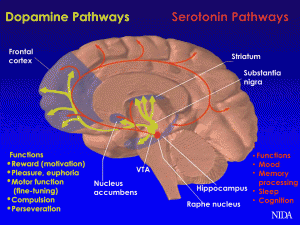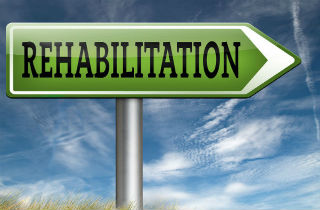ARTICLE SUMMARY: Successful rehabs offer individualized treatment plans that are unique to each patient. And for personal success in recovery, you need three things in place. 1. You need to be motivated. 2. You need to choose a rehab best suited to your needs. 3. You need to have an aftercare plan. More here on how to get through rehab to the other side…and experience a life of satisfaction and joy.
ESTIMATED READING TIME: 5-10 minutes
TABLE OF CONTENTS
- Are You Ready to Change?
- Negative Thoughts
- SECRET 1: Find Motivation.
- SECRET 2: Choose the Right Treatment Program
- SECRET 3: Have an Aftercare Plan
- 5 Things to Avoid
- Your Questions
Are You Ready to Change?
If you’ve found this article, you might be exploring a stay in rehab. We’re happy for you! Honestly, rehab can be one of the best things that you ever do for yourself. However, there will be challenges along the way. You will probably encounter:
- Drug cravings
- Financial insecurity
- Negative thoughts
- Self-doubt
- Pressure from family or work
The decision to do something about an addiction problem can be very hard to make! Add to that the fact that addiction profoundly changes the brain, and as a consequence, your personality….and you might feel overwhelmed. But you do not need to be a slave to that “one last drink”, “one last pill”, or “one last fix”. The brain changes caused by substance use can be reversed…and you can get better!
This article looks into the main thought processes that can sabotage successful rehab…and offers insight into how to change your focus. We hope to help you prepare for an excellent journey in addiction recovery. Please send us your questions or comments in the section at the end. We try to answer all real-life questions with a personal and prompt reply.
Negative Thoughts
Your attitude towards the treatment process, determines the success of your treatment outcome. Addicts with a negative mindset usually drop out of treatment quickly, fail to learn almost anything from treatment while they are there, go back into old bad habits and blame others for their situation. Instead of looking at recovery as something negative try viewing at as an opportunity to earn back your life, health and well being.
So, the main reasons why people fail to finish an addiction treatment program are psychological in nature. Let’s take a closer look into these thought patterns.
1. I cannot change.
Many people who enter addiction recovery are initially resistant to change. However, change begins with courage. In order to leave your current state of dissatisfaction, you need to work on all the underlying reasons behind your addiction. So, to battle the resistance to change…focus on what’s driving your addiction.
Inpatient treatment centers provide you with the opportunity to work on the issues that drive you to your drug-of-choice. With the help of individual counseling and group therapy, you’ll have the chance to get to the bottom of addictive patterns. You can explore what brought you to substance abuse in the first place. And as you unravel what has motivated you to use drugs or alcohol…the resistance to change will melt away.
2. Cravings are stronger than I am.
In order to reverse months or years of unhealthy habits, one must be determined. Our brains reinforce certain circuits with drug use. And these circuits will protest when they are bypassed. This is one of the main reasons we experience cravings for drugs…even years after last use. Check out this brain map from NIDA for Teens to understand more about what we are up against:

The truth is that a craving is both physiological and pscyhological. Learning to identify, process, and resolve a craving creates new brain circuitry. The idea here is that you reinforce new brain circuits with practice. Every time that you allow a craving to surface and pass…you strengthen healthy habits. And with time, the cravings will occur less frequently and with less intensity.
3. I’m going to relapse and fail.
According to The Yale Journal of Medicine and Biology, relapse can be a normal part of recovery. “One lost battle doesn’t mean you’ve lost the war”! However, relapse is not inevitable.
To bolster yourself against this fear, focur on learning the early warning signs of relapse. Then, work with rehab staff to develop coping skills to prevent relapse early in the process, when the chances of success are greatest. Another thing that might help you in overcoming the fear is to understand that treatment itself requires dedication and hard work. Buckle down to the work…and the rest will follow.
The Secrets Of Success
In order to succeed in your addiction recovery you need to be motivated, to choose a treatment program that best suits your needs and to stick to your aftercare plan.
SECRET 1: Find Motivation.
We all get discouraged from time to time. During treatment, there will be days when it’s difficult to have a conversation with your counselor or to share your story during group meetings. Some days you may just want to guve up. What do you need to keep your motivation in early recovery going?
KNOW THIS: Your current state of dissatisfaction will pass.
Many people experience lack of motivation and feel melancholic or depressed, especially after detox. Substances alter the reward center and when they are completely weaned off of your body it’s normal to feel down. A couple days feeling down and unmotivated can trigger relapse.
What’s helped us during these situations is to focus on creative solutions. Here are some recommendations that have helped people in rehab move through lack of motivation:
- Explore a new activity offered by the rehab: art therapy, expressive writing, yoga, etc.
- Go out for a walk. Move through time and space. You’ll not be the same after 20 minutes.
- List the reasons you’re in treatment. Connect with those reasons for motivation.
- Talk it out. Speak with a new friend or an old confidant. Focus on the solution.
- Visit the gym. 20 minutes of cardiovascular activity will move and oxygenate your blood.
SECRET 2: Choose the Right Treatment Program.
Addiction treatment programs should not offer a one size fits all solution. In order to find the the help and support that is best for you we recommend you to do some research. SAMHSA Treatment service locator is confidential and anonymous source of information designed for individuals who seek treatment facilities across the U.S.
Here is what you need to consider before you enroll in an addiction treatment program:
- What’s the rehab’s specialty?
- Whether or not it offers detox services.
- The number of staff members they provide per patient.
- Is individualized care offered?
- Treatment approaches and philosophy.
Addiction responds to treatment. But how do you know that the treatment options out there are going to work? And what should you be looking for in the first place?
When you’re ready to get help for drug or alcohol problems… make sure that the rehab you choose uses BOTH medications and talk therapy. Currently, the National Institute on Drug Abuse (NIDA) outlines principles for effective addiction treatment that state:
“Medications are an important element of treatment for many patients, especially when combined with counseling and other behavioral therapies.”
Still, this doesn’t mean that treatment programs should be one-size-fits-all. On the contrary, rehabs need to address YOUR UNIQUE NEEDS. We are each individuals. We use substances for different reasons. And we are ready to get better for different reasons. As NIDA states,
“No single treatment is appropriate for everyone.”
The best rehab programs are those that treat each patient as an individual with unique needs. The most successful facilities design individualized plans for each patient. Those plans require constant updates as things change during your stay or over the course of time.
SECRET #3: Have an Aftercare Plan.
The Substance Abuse and Mental Health Services Administration (SAMHSA) has delineated four major dimensions that support a life in recovery. These elements should become a part of your “aftercare plan”, or a formal written document that outlines what you are going to do AFTER you leave rehab. The four elements include:
1. Health. You will need to make informed, healthy choices that support your physical and emotional well-being after rehab. This is why ongoing psychotherapy can help and why outpatient treatment may continue for 6-12 months (or longer) after rehab.
2. Home. Having a stable and safe place to live is super important! You may be referred to a halfway house or a sober living facility after rehab.
3. Purpose. Meaningful daily activities, such as a job, volunteering, family caretaking, or creative endeavors shuold be planned throughout your week. An aftercare plan should outline these activities.
4. Community. This often takes the form of 12 step groups or peer support communities. You’ll need new, healthy relationships and social networks that provide support, friendship, love, and hope during the months, years, and throughout your life.
Top 5 Things To Avoid
1. Avoid doing it on your own. You don’t need to isolate when you’re getting help. In fact, it can work against you. Addiction is more successfully overcome when you seek treatment and work with others. Support from loved ones is vital in order for an individual to get through all the challenges they face on their journey to sobriety. So, avoid single-ness. Go for unity.
2. Avoid short term treatment programs or rapid detox. Instead, commit to a structured treatment program and stay devoted during the entire recovery process. Inpatient programs are especially beneficial because they remove you from the drug scene and the temptation to go back to old habits.
3. Avoid quitting after a slip. Relapses are very common during addiction recovery. Instead of throwing away all the effort, keep moving forward through the next treatment stages
4. Avoid negative thinking. Instead ,work on all the psychological issues that affect your level of motivation with your therapist for addiction counselor. Do not forget that addiction is not just a physical disorder, but a psychological as well.
5. Avoid all the people and places that are connected with your previous lifestyle. Learn your triggers and apply the coping tools and techniques learned during treatment that will keep you away from anything that might provoke relapse.
Your Questions
There is a saying:
“Once you start moving forward there is no going back!”
Taking he first step towards recovery and decide to never turn back to your old unhealthy choices. And know that it is never too late to make a positive change in your life!
Success in addiction recovery does not come by default – you have to work for it!
Now is your change for feedback. Share with us your questions, comments, or personal experiences in the comment ssection below. We’ll make sure to reply to you as soon as we can.









Related Posts